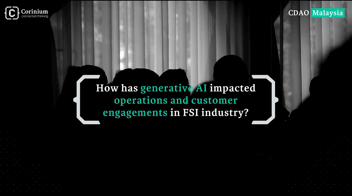Malaysia's AI Governance and Ethics Guidelines: A Step Towards Responsible AI

The Malaysian government has taken a crucial step in aligning the country’s AI development with global standards through the publication of its National Guidelines on AI Governance & Ethics. It is designed to provide guidance for multiple stakeholders, from end users to policymakers and developers, as Malaysia continues to embrace AI for economic growth and societal well-being.
National Guidelines on AI Governance & Ethics is crafted under the leadership of the Ministry of Science, Technology and Innovation (MOSTI). It offers a comprehensive framework for deploying AI technologies in a responsible, transparent, and ethical manner.
The Seven Key Principles of Responsible AI
At the heart of the guidelines are seven AI principles that prioritize ethical practices, human rights, and inclusiveness. These principles are drawn from international best practices and ensure Malaysia's AI governance aligns with global ethical standards, including those set by UNESCO and the OECD. These principles are:
- Fairness: AI systems must be designed to prevent bias and discrimination. They should ensure equitable access to the benefits of AI across different demographics.
- Reliability, Safety, and Control: The guidelines emphasize that AI technologies must be robustly tested to ensure they perform as intended. Systems should be fail-safe by design and subject to rigorous oversight, particularly in sensitive applications like healthcare or autonomous vehicles.
- Privacy and Security: Protecting personal data is a top priority. AI systems must ensure data is collected with informed consent and stored securely to prevent breaches. These systems should comply with international standards on data protection and privacy.
- Inclusiveness: AI must be accessible to all segments of society. The guidelines urge developers to consider the needs of marginalized groups and promote diversity among AI creators.
- Transparency: AI systems must be understandable to users and stakeholders. This principle advocates for clear communication about how AI systems operate and how decisions are made, allowing users to challenge outcomes where necessary.
- Accountability: Developers, operators, and those who implement AI technologies are held accountable for the results. The guidelines call for clear documentation of who is responsible for AI outcomes at every stage of deployment.
- Pursuit of Human Benefit and Happiness: The ultimate aim of AI in Malaysia is to enhance human well-being and societal progress. This principle underscores that AI should be used to benefit society as a whole, improving quality of life and human dignity.
Applications of the Guidelines in Malaysian Industries
Malaysia is already seeing the practical application of these guidelines in various sectors. The banking industry, for instance, has embraced AI-powered chatbots that adhere to the transparency and accountability principles outlined in the guidelines. CIMB Bank’s Enhanced Virtual Assistant (EVA) and HSBC’s Chatbot Amy, for example, are models of responsible AI applications, designed to improve customer service without compromising data security.
In the healthcare sector, AI-driven innovations such as the Stethee Pro, an AI-enabled stethoscope system, highlight the potential of AI in enhancing medical diagnostics and patient care. This system aligns with the guideline’s emphasis on reliability, safety, and inclusiveness by offering accurate, real-time analysis for heart and lung conditions while ensuring that the technology benefits a broad demographic.
AirAsia's AI-powered virtual assistant, AVA, is another real-world example of Malaysia’s responsible AI deployment. AVA streamlines customer service by offering 24/7 support in multiple languages, adhering to the inclusiveness and transparency principles of the guidelines.
Building Trust through AI Governance
The guidelines stress the importance of building trust in AI systems, which is critical for fostering adoption. A study referenced in the guidelines showed that 84% of Malaysian stakeholders agreed on the need for implementing ethical principles to support Responsible AI. This trust is further cemented by the establishment of AI governance structures, which oversee the proper implementation of AI in both the private and public sectors.
To address evolving risks and ensure the technology’s continuous alignment with societal values, Malaysia has committed to regularly updating the guidelines, making them a living document that can adapt to new developments in AI technology.
Malaysia’s National Guidelines on AI Governance & Ethics serves as a blueprint for responsible AI development and deployment. With clear principles focused on fairness, inclusiveness, accountability, and human benefit, these guidelines pave the way for Malaysia to harness AI’s transformative power while safeguarding societal values and human rights. As AI continues to play a larger role in Malaysia’s economy and public services, these guidelines ensure that technological advancement does not come at the expense of ethical considerations or public trust.
Do you have an interesting story to tell about your AI journey? We'd like to hear from you. Reach out to Eleen Meleng for this opportunity.

-Jun-13-2024-09-25-48-8525-AM.png?width=352&name=Untitled%20design%20(2)-Jun-13-2024-09-25-48-8525-AM.png)

